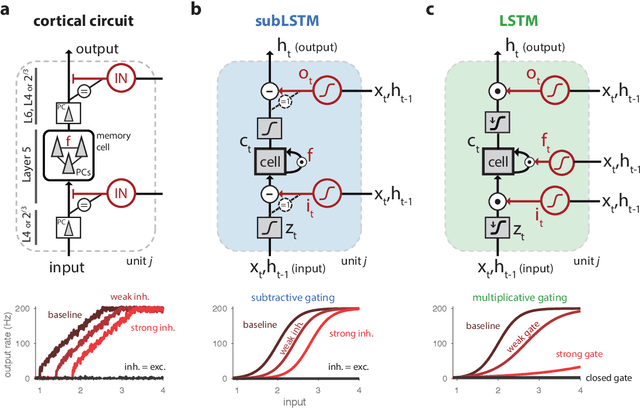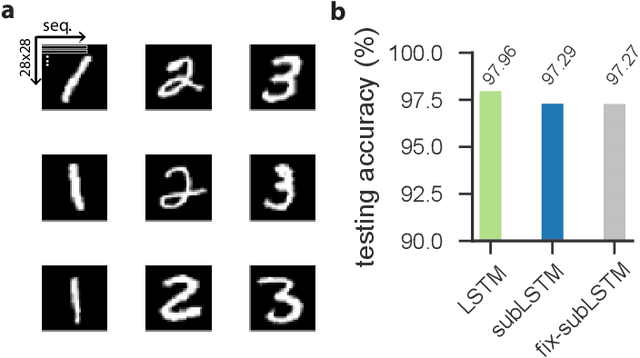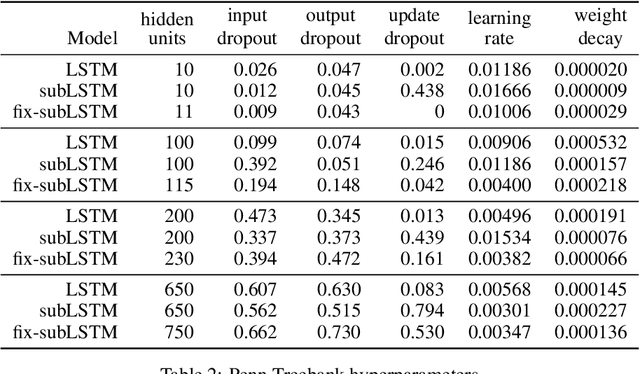Cortical microcircuits as gated-recurrent neural networks
Paper and Code
Jan 03, 2018



Cortical circuits exhibit intricate recurrent architectures that are remarkably similar across different brain areas. Such stereotyped structure suggests the existence of common computational principles. However, such principles have remained largely elusive. Inspired by gated-memory networks, namely long short-term memory networks (LSTMs), we introduce a recurrent neural network in which information is gated through inhibitory cells that are subtractive (subLSTM). We propose a natural mapping of subLSTMs onto known canonical excitatory-inhibitory cortical microcircuits. Our empirical evaluation across sequential image classification and language modelling tasks shows that subLSTM units can achieve similar performance to LSTM units. These results suggest that cortical circuits can be optimised to solve complex contextual problems and proposes a novel view on their computational function. Overall our work provides a step towards unifying recurrent networks as used in machine learning with their biological counterparts.
 Add to Chrome
Add to Chrome Add to Firefox
Add to Firefox Add to Edge
Add to Edge